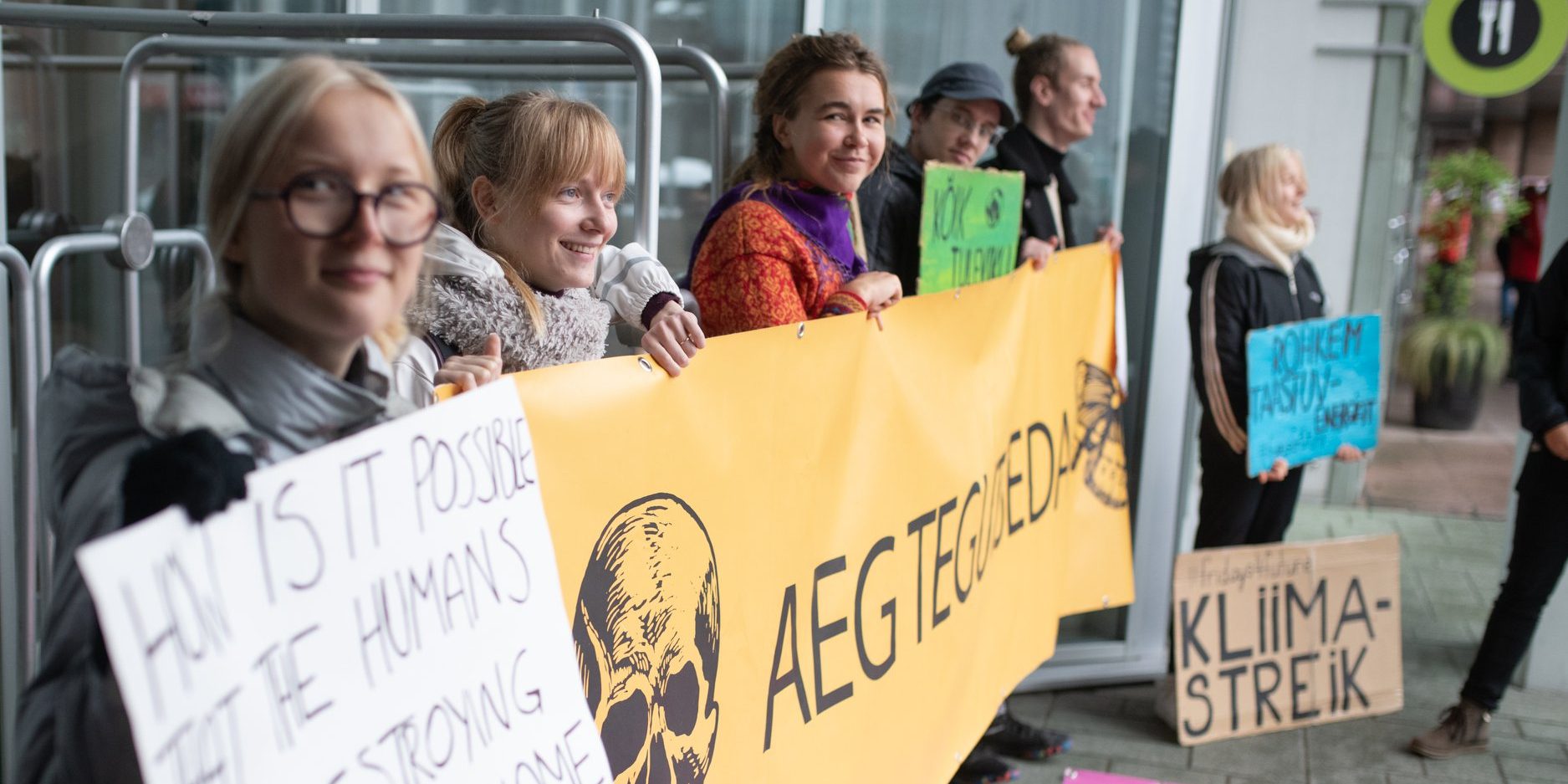On Friday 13 September the newly formed Estonian national climate commission held its first conference together with the Estonian Academy of Sciences and Government Office, with the apocalyptic title “Climate Neutrality – Annihilation or Success?”
A coalition of 12 NGOs were permitted to use the event to hand the prime minister Jüri Ratas a petition with nearly 2 500 signatures, demanding that Estonia become climate neutral by 2035. However, things did not go according to plan.
Shortly before the event however, the organisers announced that no petitions would be allowed and anywho who tried to hand over any signatures to the prime minister will be removed from the premises, contrary to what was previously agreed.
Regardless of the initial setback, the NGOs continued to gather signatures and successfully delivered the petition to the prime minister on 30 September. The petition asks to re-open the outdated, long-term national development plans, some of which are based on studies conducted as far back as 2013, well before the landmark Paris Agreement was in place.
Estonia produces some of the most per capita CO2 emissions in the EU, which rose more than four per cent in 2018, while the rest of the EU declined by 2.5 per cent, according to Eurostat. While Estonia will meet its 2020 Paris climate targets, it will fall way short of its 2030 goals if it continues business as usual: the government is proposing to extend the life of the fossil fuel shale industry by substituting electricity from shale with large amounts of biomass and instead use shale for oil.
This would mean upwards of one billion euros of investments in new fossil fuel infrastructure and refineries and allocating free CO2 quotas to subsidise the fossil fuel industry instead of planning a just transition. This is in clear contradiction with international climate policies.
The old developmental documents are now being used as the basis for the new National Energy and Climate Plan that all Member States must submit by the end of the year. Such an approach is leading the country on the road to annihilation, not success.
Never miss an update
We expose the risks of international public finance and bring critical updates from the ground – straight to your inbox.

